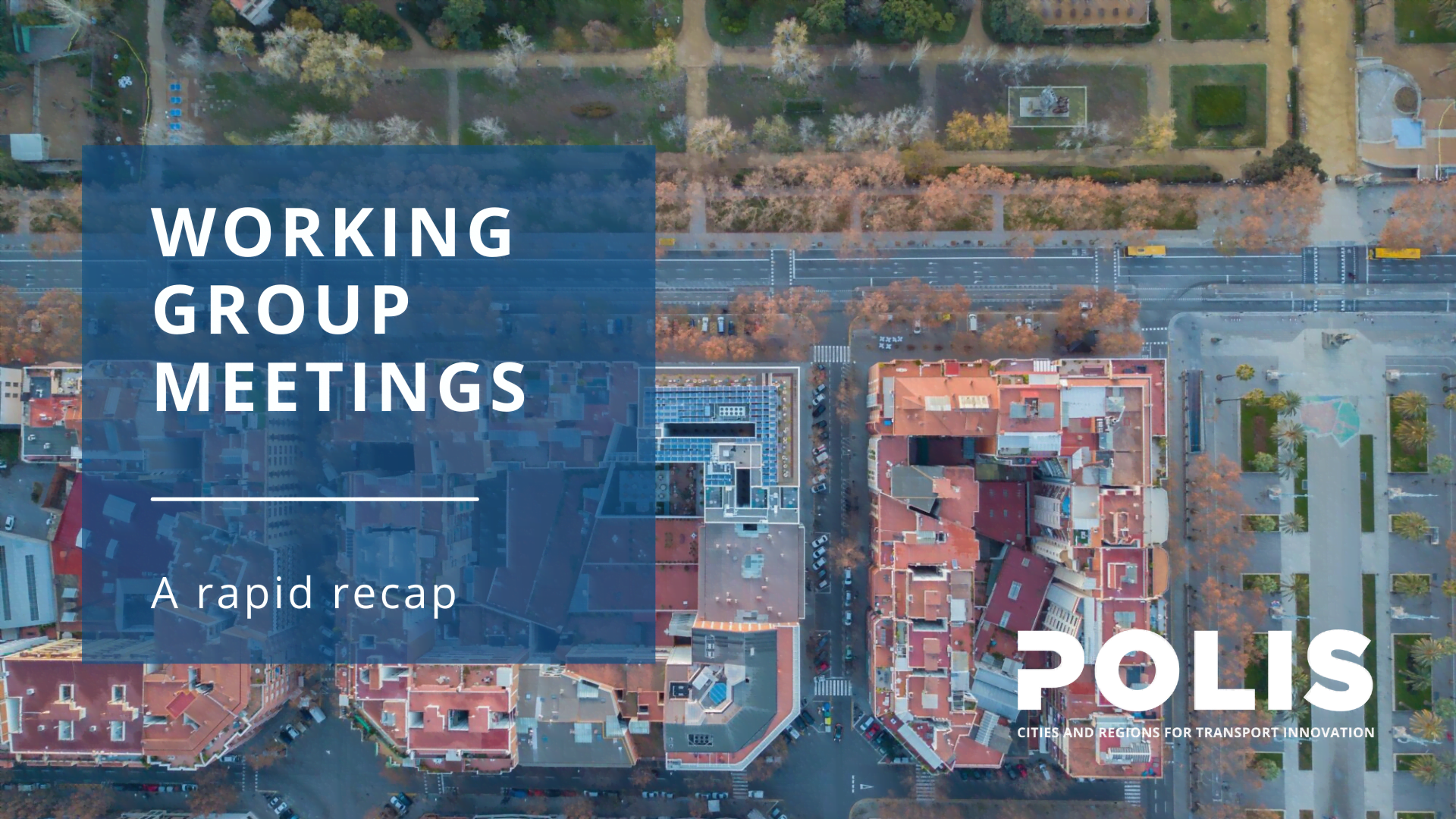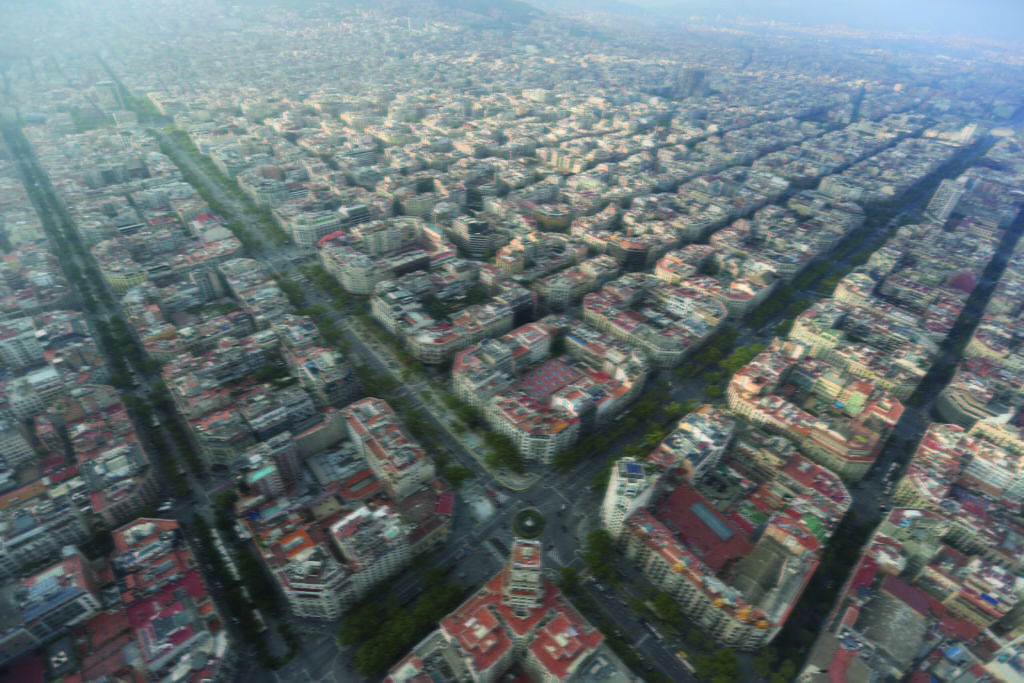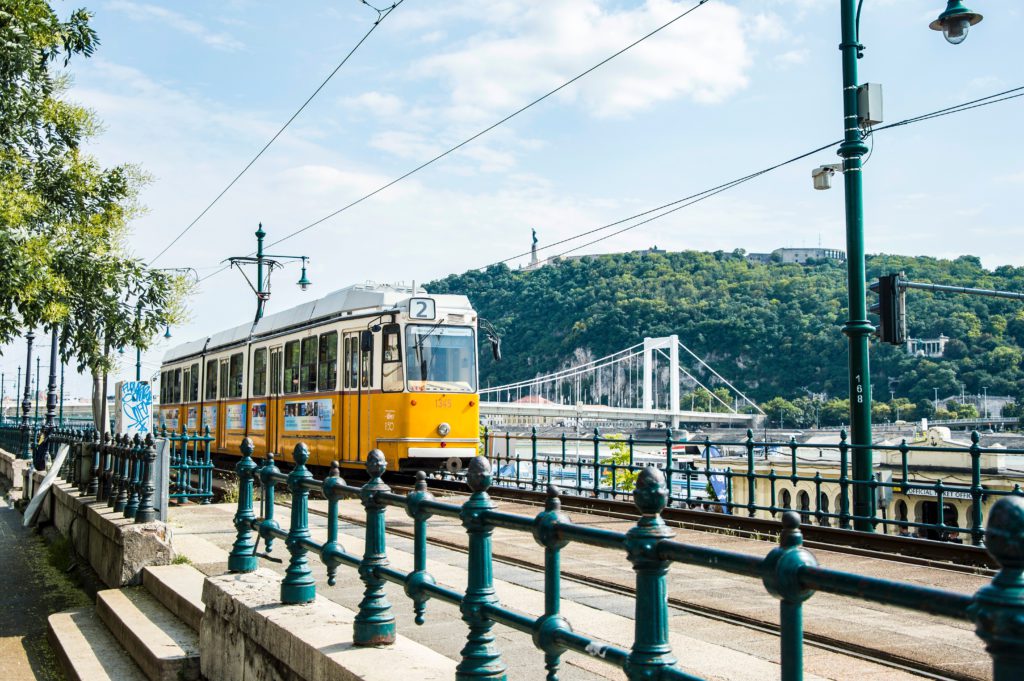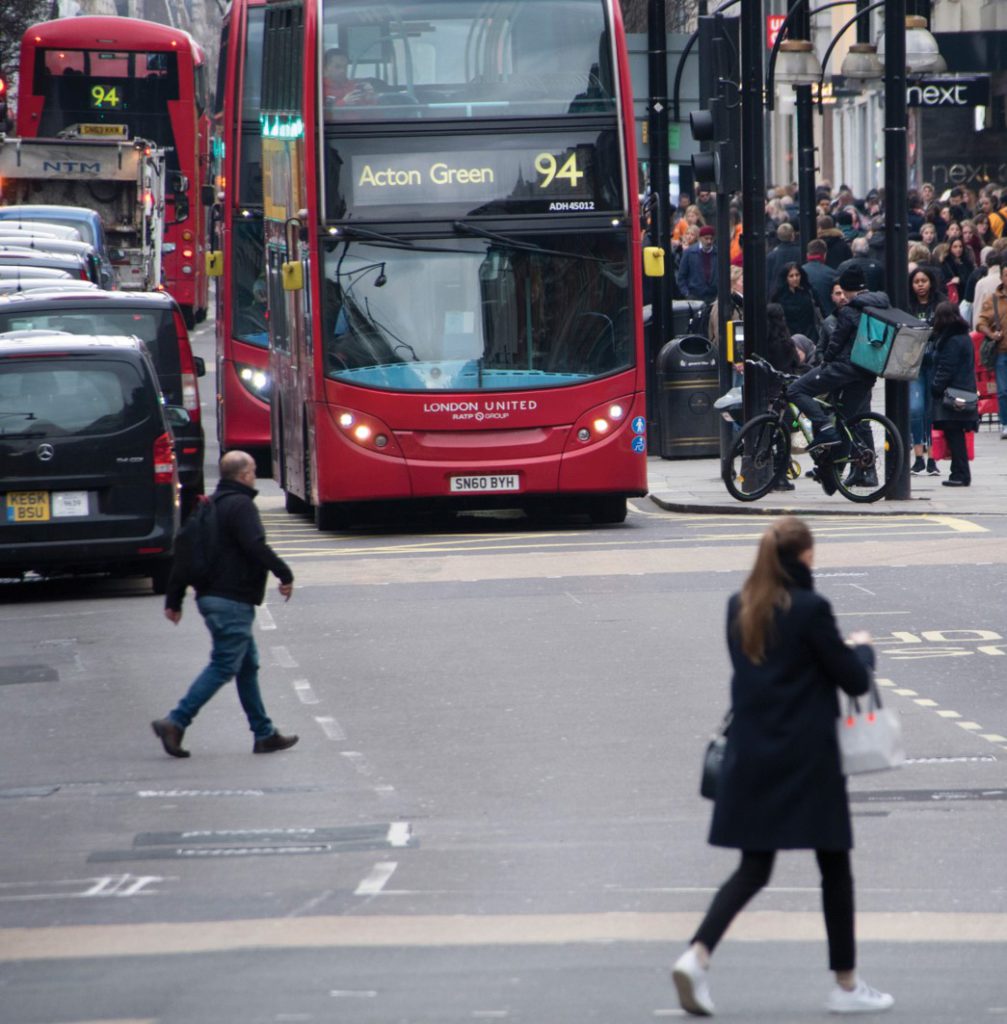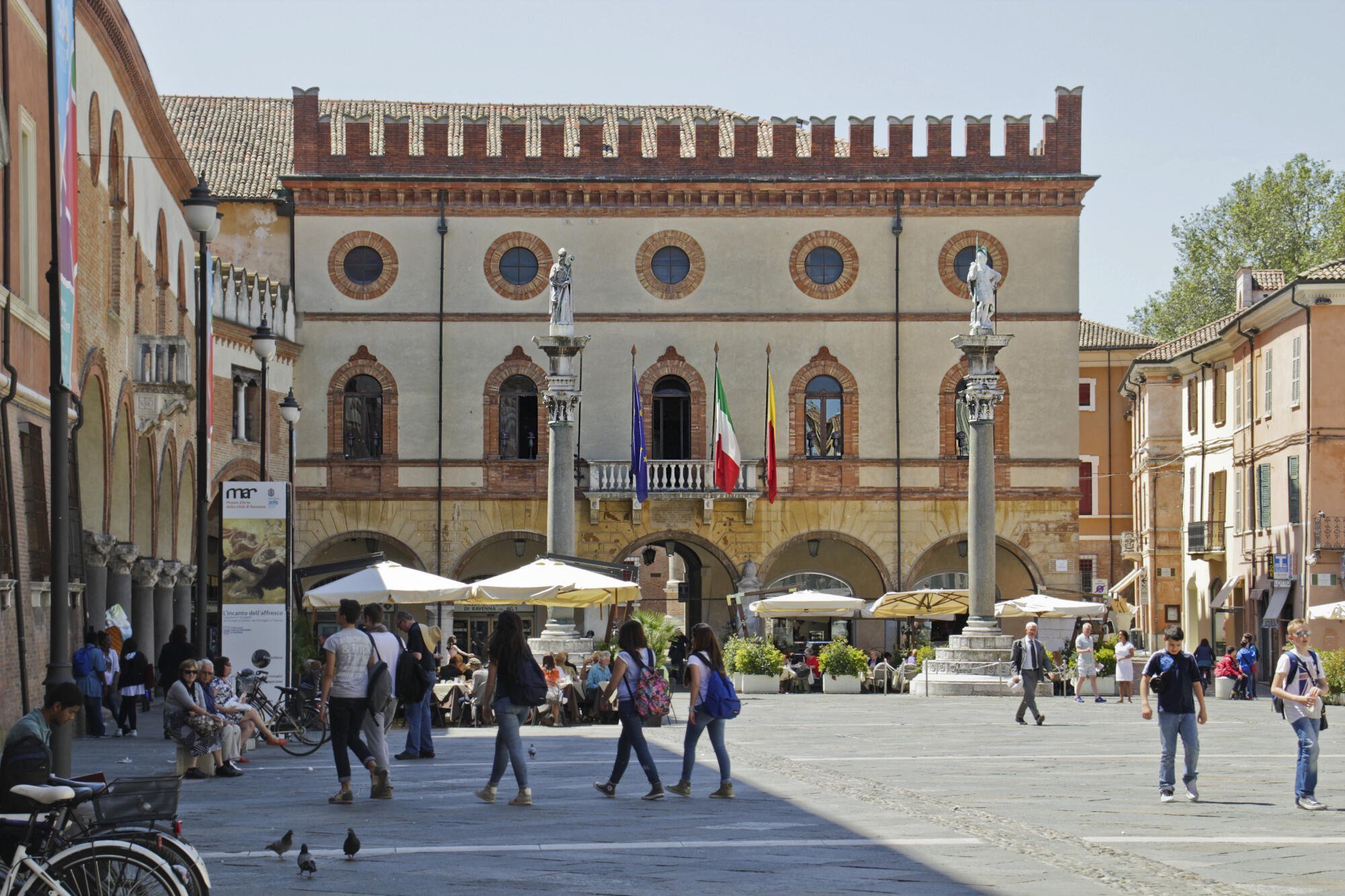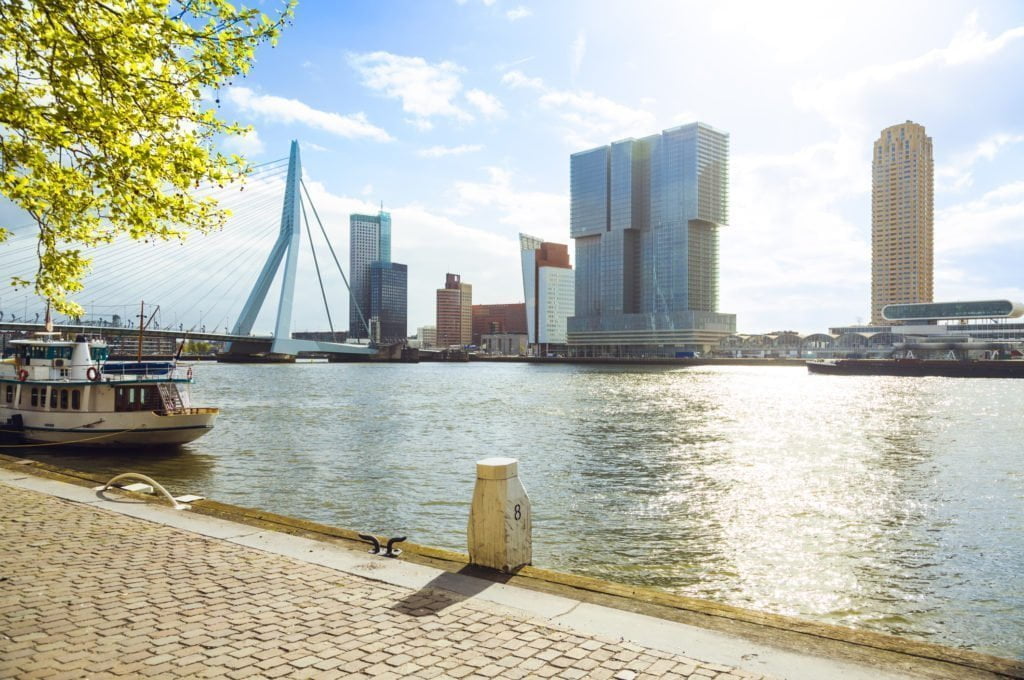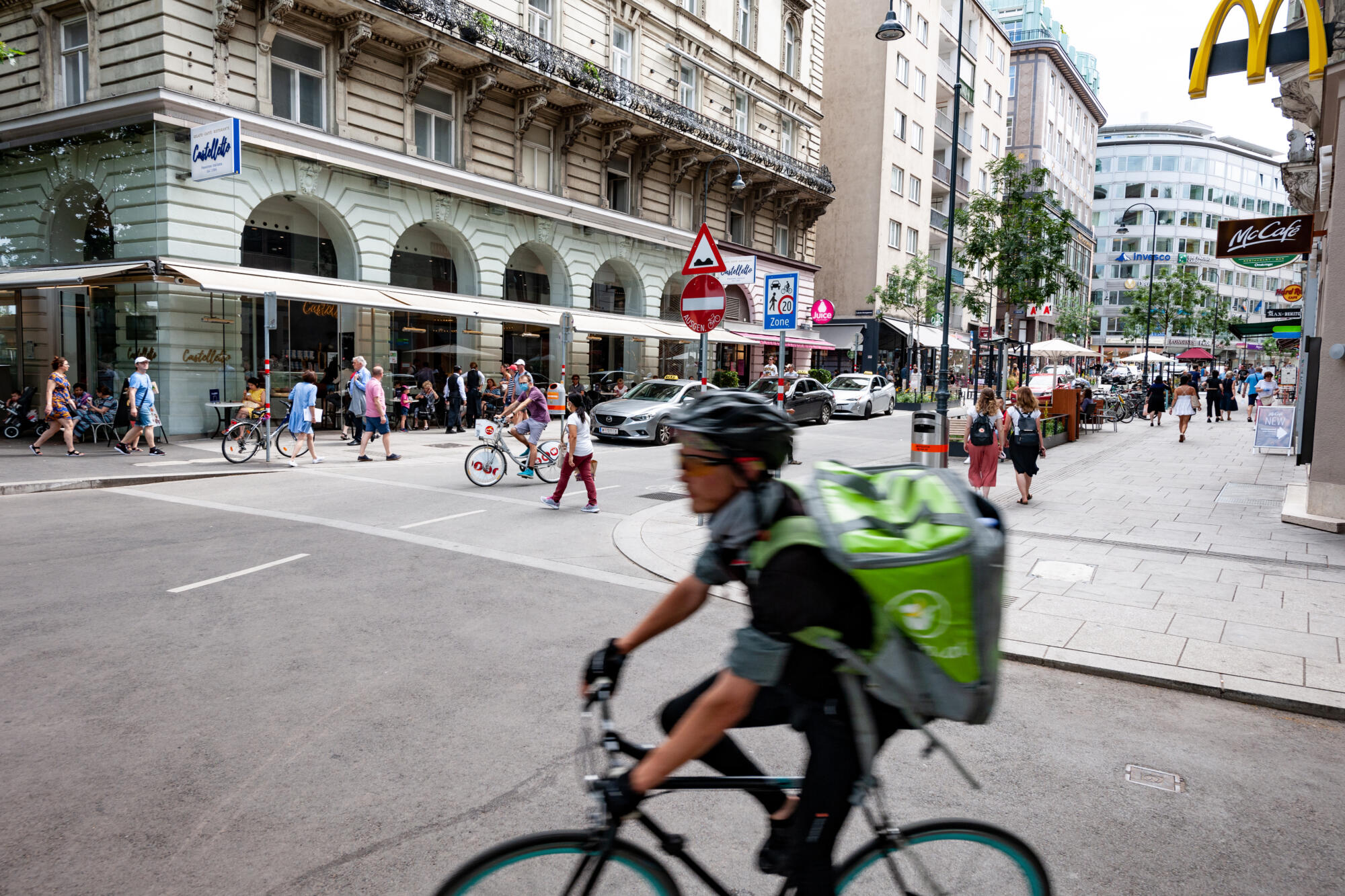April’s Working Group meetings: A spring in our step
As the sunshine arrived and the days grew longer and warmer, our working groups were a hive of activity.
This month From Zero Emissions Zones for freight (ZEZ-Fs), to Euro-7 standards, road safety to walkability, POLIS members from across Europe have convened to share practices and debate the way forward for sustainable urban mobility. It has been fantastic to see our new members including Moscow, Ravenna and University Gustav Eiffel wasting no time and getting stuck into the debates and presentations.
Road safety: A discussion on how cities and regions can collaborate for safer, citizen centric mobility infrastructure
Pedestrian and cyclist traffic fatalities remain high in many European urban areas, but progress is possible. Across Europe, cities and regions are achieving substantive reductions.
This meeting heard from the Spanish city of Pontevedra, winners of the first European Urban Road Safety Award, who have reduced road fatalities in the city consistently since 1999, impressively achieving zero road deaths between 2011 and 2018. The Flemish Foundation for Traffic Knowledge (VSV), presented their “Road Safety Coaching for Municipalities”.
The discussion highlighted the achievements which are possible when cities, regions and other mobility stakeholders work together to coordinate strategies which place citizens at the heart of urban spaces.
Urban Freight: Members talk ZEZ-Fs, new projects and fresh partnerships
Urban freight produces an outsize share of air pollution and CO2 emissions, yet few cities and countries have developed a specific vision for zero-emission freight operations. As we strive to meet urgent emissions reduction targets, the sustainability of last-mile logistics is a pressing concern. With vans representing 14% of NOx emissions from vehicles in cities, action is needed, fast.
This discussion presented an opportunity to hear from cities that have begun planning ZEZ-Fs, building on the How-to Guide on Zero-Emission Zones for Freight, a joint publication from POLIS, TDA and C40 which provided practical advice for developing such zonal planning.
Participants heard from Milan, Barcelona, new member Ravenna and many others who shared their pilot projects and innovative financing approaches.
POLIS’ new project, SURF (Sustainable URban Freight), launched on 15 April 2021, aims to support the development of Zero-Emission Zones for freight (ZEZ-Fs).
Active Travel: Cities and regions discuss how to take walkability to the next level
Walkability is key to climate-friendly, healthy and liveable cities, which cater to citizens’ everyday mobility demands, from recreation to commuter travel. Now, local authorities are prioritising the pedestrian experience while transforming walking into the most obvious, enjoyable and safe means of travel for short trips.
The experience of these cities, and others, has revealed the importance of governance and strategic planning. Without a clear roadmap which addresses key elements of the pedestrian experience, walkability is a mere pipedream.
To explore how such strategic approaches can be implemented, POLIS Active Travel working group met to discuss the importance of strategic planning for improving walkability in European cities.
It was a jam-packed meeting. We heard from Budapest, Rotterdam, Ravenna and Vienna who shared their strategies for reorganising public space around pedestrians.
It was also a chance to hear from leading experts from Institute for Transportation and Development Policy (ITDP) and Walk21 who provided key advice for cities seeking to embark on new walkability strategies.
The meeting provided a set of key recommendations as well as remaining challenges. Stay tuned for the next meeting, Reallocating space towards safe, permanent and inclusive infrastructure for active travel, at THE PEP Vienna 2021 – Fifth High-level Ministerial Meeting on Transport, Health and Environment.- an event open to all!
Road safety: An exploration of the challenges and solutions for security of public transport facilities
If sustainable mobility services are to be successful, travellers need to want to use them. This is a critical issue when it comes to public transport. Feelings of insecurity are a major deterrent for users; electric buses, air conditioning, free wi-fi, and smart ticketing apps are helpful, but not enough to allay security fears.
Feelings of discomfort and even fear towards the use of public transport facilities can discourage and block, or delay, the shift towards sustainable mobility. How can this be tackled?
This meeting brought together a range of experts from University College London and Milan for a rigorous discussion with members on the structural underpinning security issues and exploring practical solutions; revealing some incredibly interesting results!
Clean Vehicles & Air Quality: POLIS joins BEUC and EPHA to discuss mobility post-Euro 6 standard
The official ruling that air pollution made a “material contribution” to the death of nine-year-old Ella Adoo-Kissi-Debrah in London marked a stark- and tragic- moment in Europe’s fight against poor air quality. As cities and regions strive to slash vehicle emissions, the judgement reinforced the necessity for rapid action. The planned Euro 7 standard can become an important juncture to improve air quality in European cities and regions.
This event, “Clean cities, healthy citizens: cutting vehicle emissions”, discussed the potential post-Euro 6 standard, its impact and opportunities for creating healthier, more sustainable urban environments, bringing together cities, regions, consumer and health organisations which have worked extensively on urban air quality.
It provided cities and regions with a detailed roadmap of the planned Euro-7 standards, how it will affect them, and how they can harness the new regulations to reduce transport related pollution.
Please note: Our Working Group meetings are open to POLIS members only. For more information regarding membership please contact our Membership Manager, Pasquale Cancellara.
